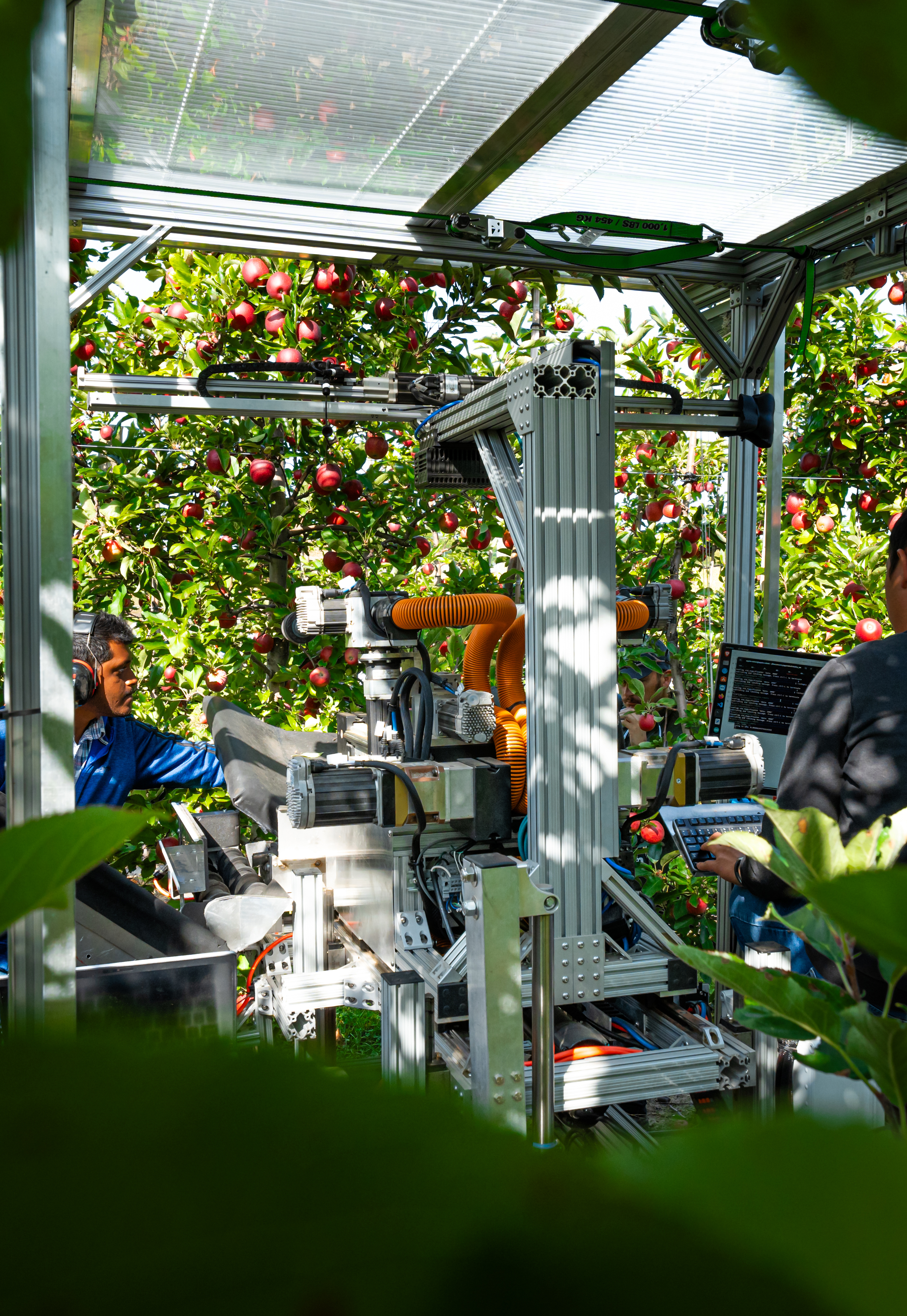A robotic apple picker developed by Michigan State University slowly rolls through a west Michigan orchard systematically picking apples off the trees thanks to a collaborative partnership with the U.S. Department of Agriculture. Researchers at MSU aim to advance the robot’s functionality compared to previous robotic pickers using artificial intelligence, or AI, to harvest the ripest apples and leverage engineering technology to protect the apples from bruising.
When MSU’s Zhaojian Li, a Red Cedar Distinguished Associate Professor in the College of Engineering, partnered with Renfu Lu, with the USDA-ARS and an Adjunct Professor with the College of Agriculture and Natural Resources, they wanted to automate apple picking to address labor shortages and rising costs while maintaining the quality of the apples picked.
With support from USDA, Li and Lu developed their first robotic apple picker in 2021. Since then, advances in technology have led to the latest version of the robotic prototype, which uses AI and engineering technology to select and pick the best apples.
“Everything keeps getting better,” said Li. “Steady progress has been made over the years and we can pick more high-quality apples faster and more robustly.”
The apple-picking robot uses an RGB-D camera that provides images containing the color of the apples (the RGB) and the depth or location (the D) of the apples on the tree. AI uses these images to identify the apples that are ripe and ready for picking. Then, one of the robotic arms is directed to the best apple. The soft silicone gripper on the arm gently “grabs” the apple while the robotic arm suctions the apple — “picking” it from the tree. Next, the arm moves over to a conveyor belt and the vacuum inside the robotic arm is turned off, which drops the apple, and the process repeats. Currently, the robot can pick an apple in 3.6 seconds or approximately 1 ton of apples a day compared to a skilled apple picker, who can pick about 6 tons of apples in a day.
“This is just the beginning,” said Joe Affholter, commercialization program director for the Michigan Translational Research and Commercialization, or MTRAC, Innovation Hub for AgBio with the MSU Innovation Center. “This technology has great potential locally, state-wide and even nationally to make an impact on the permanent long-term labor shortage that is threatening the specialty crop industry in Michigan and across the U.S.”
The MTRAC AgBio program is co-funded by MSU and the Michigan Economic Development Corporation. To advance the robotic apple picker technology, the program has provided funding to improve the efficiency of the system in both rate and accuracy. Looking ahead, the researchers have identified new opportunities for further improvement and have sought additional funding as the technology moves rapidly toward testing in commercial orchards in Michigan. These developments are particularly timely for farm operations that have high fruit volumes, as they contend with an ever-decreasing number of workers to handpick all the apples. The race to develop technologies that meet the need is clearly underway.
With the support of a newly funded $3.5 million project by the USDA, Li and Lu anticipate that this robotic system will continue to advance in precision over the next four years and could eventually be used throughout Michigan and in other apple-producing states like Washington, Oregon and Pennsylvania.
“This could significantly help support local orchards, while also improve the apple orchard industry across the U.S.,” said Li.
Watch MSU's robotic apple picker in action.
